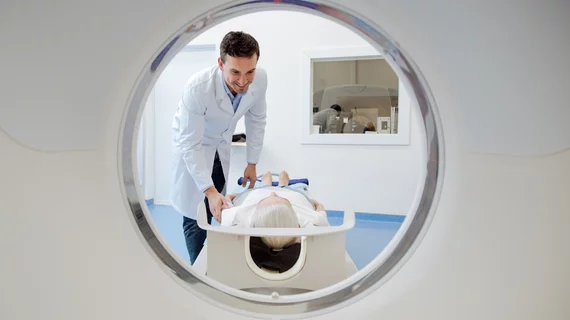'Huge improvement': Redesigned cochlear implant allows safe, comfortable MRI in children
Children with a redesigned cochlear implant can undergo MRI without discomfort and with less required sedation or anesthesia, according to a recent study.
Researchers from Ann & Robert H. Lurie Children’s Hospital of Chicago tested a small group of young patients with MED-EL Synchrony implant devices for their findings, published in Laryngoscope. More than three-fourths of exams were completed while participants were awake with none reporting discomfort.
With most hearing implants, the small magnet used to attach to a sound processor behind the ear must be surgically removed before an MRI. This novel device allows the magnet to rotate with the force of the imaging machine, which may be a game changer.
“This is a huge improvement, especially for children with conditions requiring repeated imaging,” lead author Nancy Young, MD, medical director of Audiology & Cochlear Implant Programs at Lurie’s, said Thursday. “In the past, all of our patients with cochlear implants required sedation during scanning, to avoid additional surgery to remove the magnet,” she added.
Young and colleagues included seven patients, ages 1.3 to 19 years, in their study. Each underwent 17 exams using either 1.5 or 3 Tesla MRI machines. Overall, 76% of procedures were finished in awake patients, and 93% of brain studies and all body imaging offered “clinically useful” results.
“MRI is an increasingly important diagnostic tool, and access to MRI evaluation without pain and other complications is critical for children with cochlear implants,” said Young, who is also a professor of pediatric otolaryngology at Northwestern University Feinberg School of Medicine.
Read the entire study published June 22 in Laryngoscope for free here.

